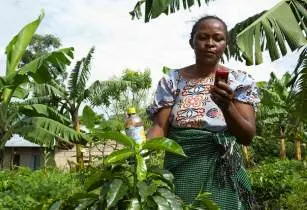Three African agri-tech start-ups have been chosen to be part of an incubation programme meant to educate them on business know-how and bring up the condition of agriculture
Ampion Venture Bus, a start-up boot camp with 40 participants, along with the German Ministry for International Cooperation and Development (BMZ) will support young African entrepreneurs to build agri-tech start-ups in southern Africa.
The participants were from South Africa, Botswana, Namibia, Zimbabwe, France and Germany. Of all the entries assessed by the jury, three have been shortlisted as winners – Mkuyu, which is a digital education platform that bridges the gap between unemployed African youth and career opportunities in the agricultural sector; Agri2Go,which is a digital platform that provides transparent, real-time pricing information for agricultural products in Africa; and SheFarms, an investment platform for female African farmers that aims to reduce food scarcity and gender inequality in agriculture.
The winners will receive access to the AMPION Fellowship program 2016 – a six month incubation programme that supports start-ups with small seed funding and business know-how provided by entrepreneurship experts, said officials.
Ampion CEO Fabian-Carlos Guhl said, “Thanks to the partnership with BMZ, we can build up the start-up ecosystem in Africa with our local partners. Innovative solutions for the African agricultural sector improve the productivity and lives of millions of people. With our initiatives we want to contribute to the successful creation and implementation of these solutions.”
Agriculture is a significant part in the life of an African citizen. More than 60 per cent of the continent works in the sector. Despite such a large workforce engaged in the sector, productivity is limited, feel observers. New technologies and digitisation of procedures is essential for the development of the sector, they believe.
The Venture Bus tour travelled through Namibia, Botswana, Johannesburg, and Bloemfontein before ending in Cape Town, where 10 startups presented their ideas to the investor jury. During the course of the journey, participants were provided training in design thinking and lean startup methodologies. In addition, site visits were scheduled on the route, which included commercial and communal farms, as well as local technology hubs and innovation centres.





